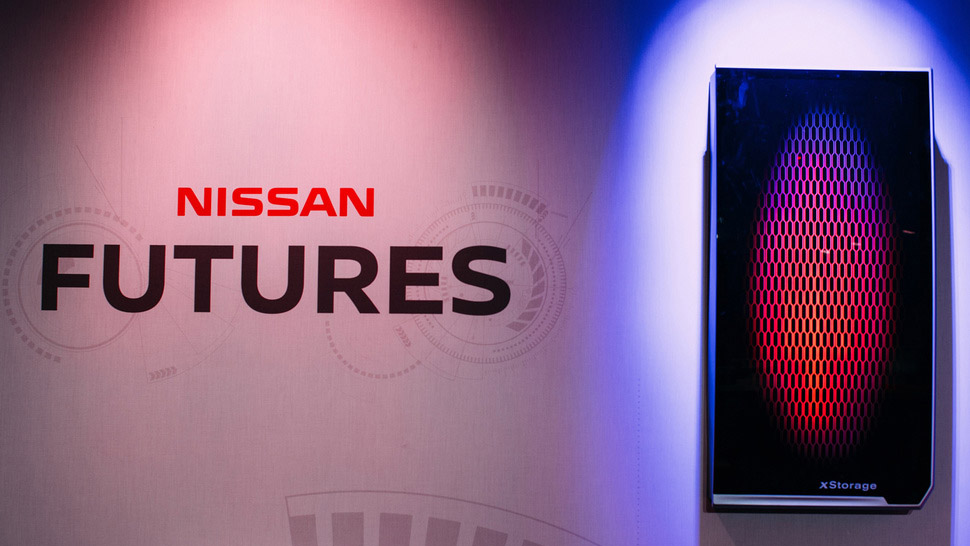Nissan's home battery will drive down your electricity bill
Store electricity from your own panels

Sign up for breaking news, reviews, opinion, top tech deals, and more.
You are now subscribed
Your newsletter sign-up was successful
Nissan has unveiled the xStorage home battery, its answer to Tesla's Powerwall, giving users the ability to store electricity within their home for later use.
Priced at £3,200 (about $4,600 or AU$6,300) for 4.2kWh the battery is significantly more expensive than Tesla's $3,000 (about £2,000) 7kWh Powerwall. Hopefully, with its higher price the xStorage battery will be more available than Tesla's Powerwall, for which pre-orders quickly sold out until mid-2016.
The technology has a variety of interesting uses. If users connect the xStorage battery to the mains, they can have it draw electricity from the grid during off-peak hours when supplier rates may be cheaper. The electricity can then be used during peak hours without incurring peak fees.
As with the Powerwall, the main use case for the xStorage battery is its ability to be connected to renewable energy sources, allowing energy to be stored for when it is required by the user.
Reusing car battery tech
The xStorage battery is essentially a reused Nissan car battery, which has previously been used in a vehicle and has covered 100,000 miles to reach the end of its vehicle warranty. The capacity of the xStorage battery is around a third of that of the Nissan Leaf.
These batteries have degraded to around 70-75% of their original capacity which means they're no longer suitable for use in vehicles, but still have a suitable amount of charge for home use.
Tesla and Mercedes do not use ex-car batteries in their home battery products.
Sign up for breaking news, reviews, opinion, top tech deals, and more.
With more and more car manufacturers investing in electric vehicles, secondary product uses for the battery technology are likely to continue to emerge as companies look for additional means to monetise its investment in the technology.
The xStorage costs £3,200 (around $4,600) for the battery and installation, with pre-orders starting in September. For reference Tesla's charges $3,000 (£2,000) for the 7kWh version of its Powerwall.
The problem with renewables
Along with the Powerwall, the xStorage battery is looking to solve a major issue with renewable energy sources, which is that the energy they produce varies throughout the week with no regard for when it is required by the user.
This is especially problematic with solar panels, which produce the most energy during the day when the householder is likely out of the house at work.
The xStorage solves this problem by storing the energy, when it can then be used by the householder as required, regardless of the time of day.
The xStorage battery will initially only be available in Europe with no word on a global release.
Via Pocket-lint

Jon Porter is the ex-Home Technology Writer for TechRadar. He has also previously written for Practical Photoshop, Trusted Reviews, Inside Higher Ed, Al Bawaba, Gizmodo UK, Genetic Literacy Project, Via Satellite, Real Homes and Plant Services Magazine, and you can now find him writing for The Verge.